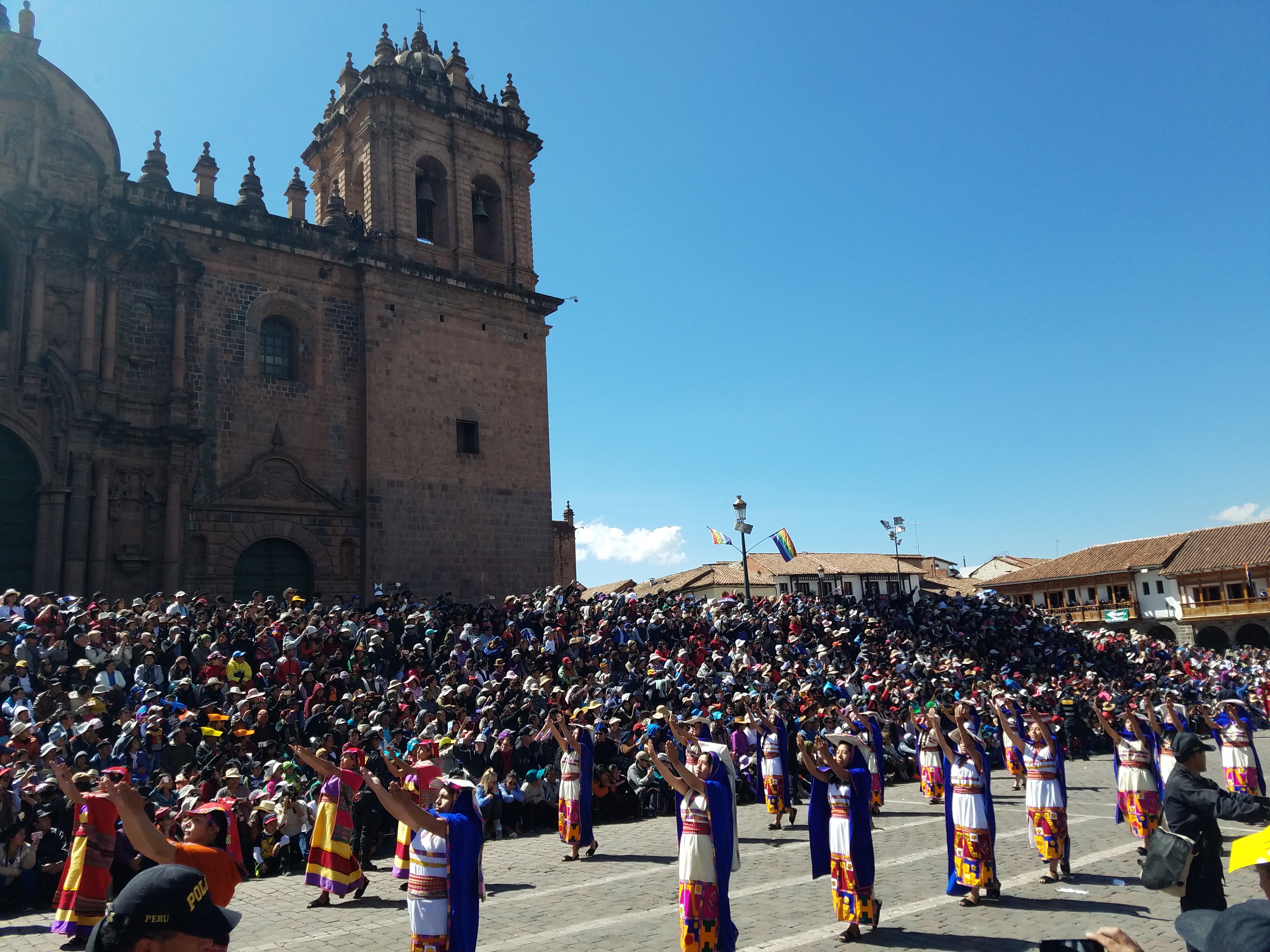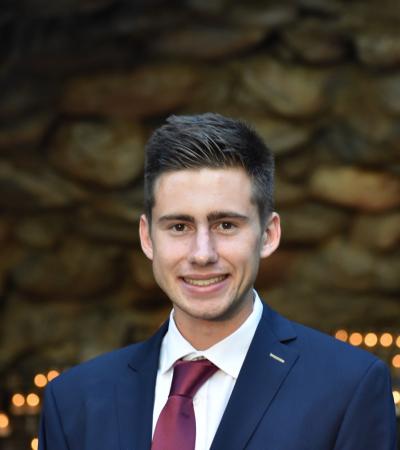Microfinance Volunteer Placement in Peru through Kaya Responsible Travel
Experiencing The World Fellowships
Peru - 2017
 Through the Kellogg Institute’s Experiencing the World (ETW) fellowship, I partnered with Kaya Responsible Travel this summer to work in Cusco, Peru at a microfinance institution (MFI) named Génesis: Cooperativa de Ahorro y Crédito. For six weeks, I worked with financial analysts and the risk manager as I learned more about microfinance and how to carry out original research. My tasks included shadowing financial professionals as they visited potential borrowers or promoted the company at local markets, writing insurance proposals, and attending daily meetings. Coming into this experience, I had three main goals. First, I hoped to learn how to ask questions and begin original research that I could continue with another professor or use in my own senior thesis project. Second, I wanted to learn how effectively microfinance reduces poverty and how microfinance clients respond to borrowing and saving constraints. Finally, I wanted to improve my knowledge of Peruvian microfinance and business culture and the Spanish language. While I did meet some of these goals, particularly my goal to better understand Peruvian microfinance and business culture, others were much more difficult to meet. In turn, I evaluate my rewarding and challenging experiences based on my ability to fulfill these pre-departure goals.
Through the Kellogg Institute’s Experiencing the World (ETW) fellowship, I partnered with Kaya Responsible Travel this summer to work in Cusco, Peru at a microfinance institution (MFI) named Génesis: Cooperativa de Ahorro y Crédito. For six weeks, I worked with financial analysts and the risk manager as I learned more about microfinance and how to carry out original research. My tasks included shadowing financial professionals as they visited potential borrowers or promoted the company at local markets, writing insurance proposals, and attending daily meetings. Coming into this experience, I had three main goals. First, I hoped to learn how to ask questions and begin original research that I could continue with another professor or use in my own senior thesis project. Second, I wanted to learn how effectively microfinance reduces poverty and how microfinance clients respond to borrowing and saving constraints. Finally, I wanted to improve my knowledge of Peruvian microfinance and business culture and the Spanish language. While I did meet some of these goals, particularly my goal to better understand Peruvian microfinance and business culture, others were much more difficult to meet. In turn, I evaluate my rewarding and challenging experiences based on my ability to fulfill these pre-departure goals.
The most rewarding part of my ETW fellowship was learning about microfinance by connecting what I had read with my on-the-ground experiences. During my first few weeks, I read various books and studies on microfinance. While this information was vital to better understand microfinance, the experiential part of this project was even more invaluable. Every morning, I would participate in a committee that would screen potential borrowers or review loan restructuring options. I would also frequent local markets with financial analysts to promote Génesis, and I would visit current borrowers looking to obtain a new loan or new borrowers looking to obtain their first loan. Each day then, I was able to connect the theoretical studies that I had read with the research’s practical implementations. I found an extremely close correlation between the theoretical and the practical. The most shocking part of this discovery was that most workers at Génesis did not even realize how research and theory affect their daily work. For instance, Génesis offers only daily or weekly repayments installations, which allows them to weed out potential defaulters early. Complex economics studies often focus on these frequent repayment installations, yet most of the Génesis workers had not read these studies, even though they formed the basis of Génesis’ daily operations.
The challenges I faced during this experience mostly involved the difficulty of pursuing original research. Since I did not have a specific research project before I arrived in Peru, my first challenge was to find and pursue a small project. Thus, when Génesis asked me to investigate the feasibility of combining insurance and microloans, I realized that this request could be an opportunity for research. I began to read about previous attempts to bundle insurance and microloans and learned that a significant issue is that many people simply do not demand insurance. Hence, with Génesis’ approval, I used a survey to gauge demand among current clients. While this project was not research per say, it included many similar aspects, including interviews and data collection and analysis. During this process, the two main challenges I faced were creating an effective survey and collecting relevant data, so I spent much of my time constantly revising the survey. Despite the effort I devoted to carry out an original research project, it was quite difficult to pursue without any guidance. In addition, Génesis did not seem to be interested in my proposals or suggestions. Another initial challenge was the language barrier, especially since the financial analysts often used technical language that I had never heard. As I became accustomed to the language, though, this challenge significantly subsided.
Despite the challenges I faced in Cusco, my knowledge of Peruvian microfinance has greatly expanded. First, I now realize how prevalent microfinance has become. Almost every block in Cusco features a new MFI. Based on simple observation, the market appears to be saturated. However, Génesis’ rapid growth and success shocked me, especially during my six weeks there. While I was with Génesis, eight new employees joined the company, so Génesis now employs about thirty people even though the company is barely one year old. Although I first thought that the prevalence of MFIs suggested saturation, I now realize that this presence signifies a robust competition. Génesis offers a fourteen percent saving rate, which is staggeringly high compared to U.S. rates. Yet, the company claims that it must offer such a high rate in order to compete with other MFIs.
The most rewarding aspect from Peru was the microfinance knowledge I gained. Whether this knowledge relates generally to microfinance and the reduction of poverty or specifically Peruvian microfinance, I have learned so much. On the other hand, the most challenging part of this experience was the research aspect. I learned how difficult research projects are to implement and how much preparation is needed. If I could amend my time in Cusco, I would have prepared a research project before I left and pursued it with Génesis in order to better understand how to carry out original research. Looking forward, I hope to use this experience either in collaborative work with a professor or in future personal research. Given my new understanding of microinsurance, I would also like to further explore the relationship between insurance provisions and microcredit. Another rewarding part of this ETW fellowship was realizing just how many microfinance questions still need to be answered. Thus, I would love to return to South America to perform more substantial microfinance work and to deepen my knowledge in this area.






